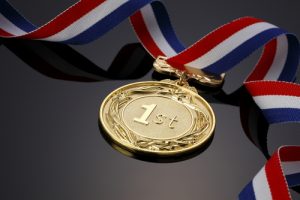
U.S. Reps. Tim Murphy (R-PA) and Greg Walden (R-OR) led a recent subcommittee hearing that explored the international anti-doping system and doping allegations that have come to light over the last year.
Murphy, the chairman of the House Energy and Commerce Subcommittee on Oversight and Investigations, heard testimony from a panel of witnesses that included Olympic gold medalist Michael Phelps, the world’s most decorated Olympian.
“Every two years, nations are filled with excitement and pride as they cheer on their athletes at the Summer and Winter Games,” Murphy said. “It has been a long-standing tradition that should not be tarnished by those that choose to cheat. Ultimately, I hope that this hearing helps to highlight ways in which we can strengthen clean competition and restore public confidence in international sports.”
Murphy cited concerns within the anti-doping community regarding an organizational structure within the current anti-doping system that “creates an environment where individuals are both policing and promoting sport.”
“Conflicts of interest stemming from the composition of the World Anti-Doping Agency’s (WADA) senior leadership currently exist, as anti-doping decision makers often simultaneously hold a policymaking position within a sports organization,” Murphy said. “Such conflicts can have both real and perceived effects on the rigorous investigations of possible violations as well as the enforcement of anti-doping measures.”
Murphy noted that anti-doping experts have publicly stated that WADA lacks sufficient independence, and that there needs to be an established decision making body and process for investigations and sanctions.
Walden, the chairman of the House Energy and Commerce Committee, said whistleblowers and journalists have exposed “a level of deception and cheating that felt more like a movie script than reality of international sport.”
“It was not the case of individual athletes looking for an edge, it was a tale of nation state-sponsored doping,” Walden continued. “Hundreds of athletes knowingly or unknowingly became part of a widespread campaign to enhance performance, alter test results, and evade detection by international anti-doping authorities.”
Walden said the challenge of doping is daunting and may never totally solved, “but that is not an excuse for inaction.”



